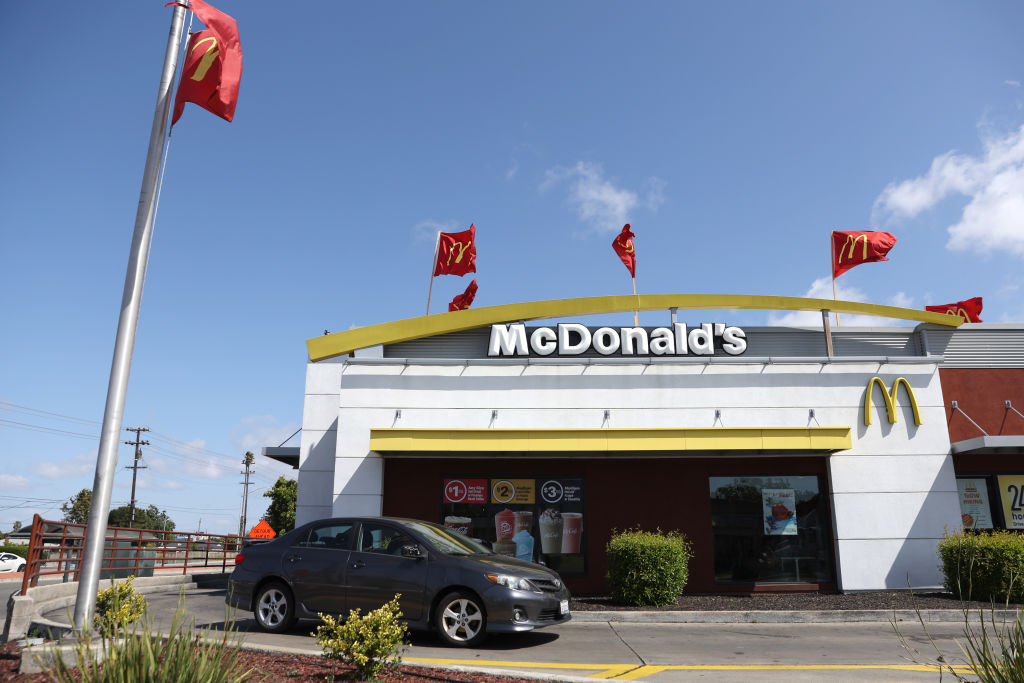For years, workers have been advocating for an increase in the minimum wage to $15 an hour.
Several states have increased their minimum wages, while some companies have taken the initiative to raise their starting wages on their own.
But the lawmakers in California have decided that the pace of change is not going fast enough, apparently. And on Monday, the state’s legislature passed a bill that would create a 10-member “Fast Food Council.”
The bill, A.B. 257, also known as the Fast Food Recovery Act gives the council the power to set the minimum wage for fast food workers as well as regulate hours and working conditions.
BREAKING: California's Senate just passed the FAST Recovery Act, a landmark bill that would improve working standards across the state's fast food industry and hold fast food companies accountable for labor violations.
— More Perfect Union (@MorePerfectUS) August 29, 2022
The bill will soon land on @GavinNewsom’s desk. pic.twitter.com/A5D321P81B
The Wall Street Journal notes, “The bill covers fast food restaurants that are part of a chain, that have limited or no table service and where customers order their food and pay before eating. The chain must have 100 or more locations nationally, up from 30 in a previous bill version.”
Additionally, while the council will have the ability to set the minimum wage, an amendment to the bill capped increases at $22 an hour for the next year. However, there can be cost of living increases after next year.
Meanwhile, the statewide minimum wage will be $15.50 in 2023.
The council will also have the ability to set “anti-discrimination” and safety regulations.
It will be made up of four fast-food franchiser and franchisee representatives, four labor advocates, and two officials appointed by the governor.
One good thing about this council is that it is set to expire in 2028 if it is not renewed. However, the Journal points out that “inflation-adjusted wage increases for workers would continue.”
State Sen. Maria Elena (D) called it “innovative” and a “very, very well-balanced method of addressing both the employers, the franchisees, as well as the workers.”
By contrast, state Sen. Brian Dahle (R) blasted the bill as he argued it is a “stepping stone to unionize all these workers.”
“There are no slaves that work for California businesses, period. You can quit any day you want and you can go get a job someplace else if you don’t like your employer,” Dahle added.
Even California Gov. Gavin Newsom’s (D) administration has voiced concerns it would establish a “fragmented regulatory and legal environment.”
Some fast food workers are high school and college students. Some are people who need a job because they can’t find any other, or got laid off or fired from another job. And still, others are people who choose to work in fast food not because they find their calling in flipping burgers, but because they don’t want the 9-5 grind of a better-paying job.
But what makes fast food workers deserve more per hour than retail store employees? Why would people apply to work at retail stores when they can make more at a fast food restaurant? You might get your cheeseburger in two seconds because 100 people are working, but good luck finding what you need on the shelves at the office supply store because no one will be working there to keep the shelves stocked.
And what’s going to happen when fast food companies decide that their labor costs are too much and installing kiosks to help customers is a lot cheaper? Or what if they slash employees’ hours or benefits to make up for the difference?
More than likely, this legislation will lead to prices surging and cost Californians more to eat out. Indeed, a University of California, Riverside School of Business study estimated that if the council sets the minimum wage between $22 and $43 an hour, it would lead labor costs to spike by 60%. Meanwhile, fast food prices would increase roughly 20%.
What can go wrong?

























 Continue with Google
Continue with Google